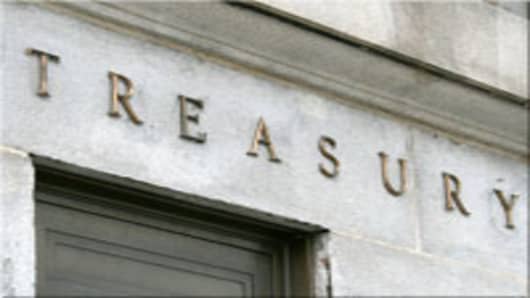Wall Street bankers, from senior executives to traders, are complaining that the Federal Reserve is refusing to engage in scenario planning for a U.S. downgrade or default.
With days until the Treasury’s August 2 deadline to raise the debt ceiling, bankers say they are not getting a response to efforts to discuss the market impact of a failure to reach a deal in Washington or if credit ratings agencies cut the U.S. triple A rating.
They want to address contingency planning for a run on money market funds that hold Treasury bonds, the impact on capital and liquidity ratios if there are large inflows or outflows of deposits and the potential effect on short-term financing from any problems in the repurchase, or “repo,” market.
“The responsible government people aren’t engaging, and I bet a piece of it is they are really not sure what to do,” said one person on the industry side. Another said: “We don’t have any information from them. For the government shutdown [when budget disagreements nearly closed down the federal government] at least we had a road map.”
The Fed is in the complicated situation of being both the principal regulator of the financial system and the agent of the U.S. government, with responsibility to pay the Treasury’s cheques, process its electronic payments and issue, transfer and redeem Treasury securities.
“In these matters, the Federal Reserve serves as the fiscal agent of the U.S. government. As such, we have been engaged in operational planning with the Treasury,” the Fed said. “We expect to be able to give additional guidance to financial institutions when there is greater clarity from the Congress and as Treasury details its specific plans.”
As Republicans and Democrats in Congress revised competing plans to avert a crisis, the S&P 500 fell 2 percent, its worst one-day decline since the start of June, while the Nasdaq endured its worst daily performance since February. Investors have grown more pessimistic over a debt ceiling deal that can deliver large, long-term spending cuts and prevent the US form losing its triple A rating.
“The equity market’s sell-off is clearly a reaction to the intractability of Congress and the president,” said Jack Ablin, chief investment officer at Harris Private Bank. “It’s clearly frustrating investors worldwide but is ultimately a buying opportunity as this is a contrived crisis.” In contrast to the slide in equities, the dollar pared its losses and the euro dropped 1 per cent. Bond yelds rose modestly.
Market participants said the Fed and the Treasury had been engaging with dealers as they usually do to monitor market flows and liquidity but had stopped short of any scenario planning.
The Treasury has so far refused to make public any contingency plans for the event that there is no rise in the debt ceiling. Unless the Treasury says, for example, whether it would prioritise interest payments, then it is hard for the Fed to discuss the implications with banks.
Bankers also believe that the Fed is afraid of sending signals that it is gearing up for a downgrade or, a scenario most analysts still consider remote, a technical default. In contrast, the International Swaps and Derivatives Association on Wednesday published information regarding the settlement of credit default swaps on US debt in the event that there are missed payments.
Banks are concerned about a wide range of operational issues as well as the broader question of how the Fed would support the financial system if there were disruption caused by a failure to raise the debt ceiling.
For example, they would like to know whether the Fed would be willing to lend against Treasurys with a defaulted interest payment, which would support the repo market. At a broader level, they would like to know whether the Fed will support the refinancing of Treasury securities by stepping in and buying any unsold stock at auctions.
In terms of the overall financial system, banks want to know what support the Fed would offer if there were a run on money market funds – knowing the Fed will provide them liquidity would reduce the chance of such a run.
They also want to know how the Fed would handle their capital and liquidity regulation if, for example, Treasurys fell in value or they experienced large inflows or outflows of deposits and how principal and interest payments would be made.


